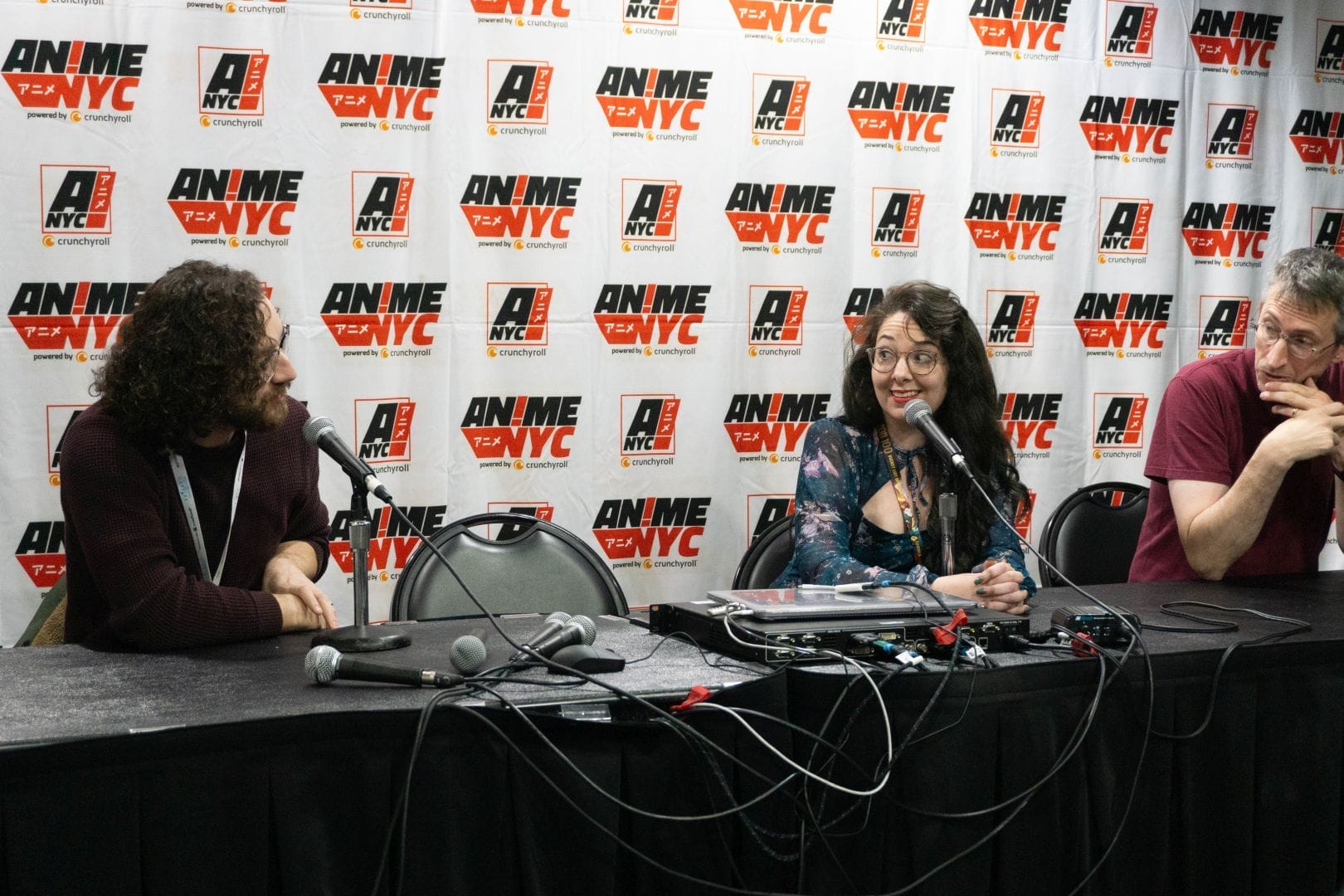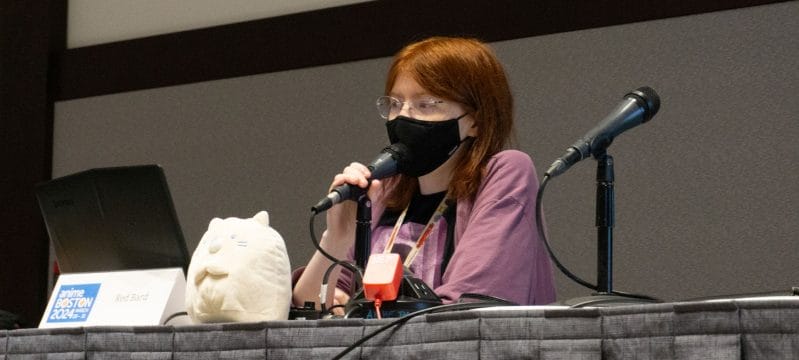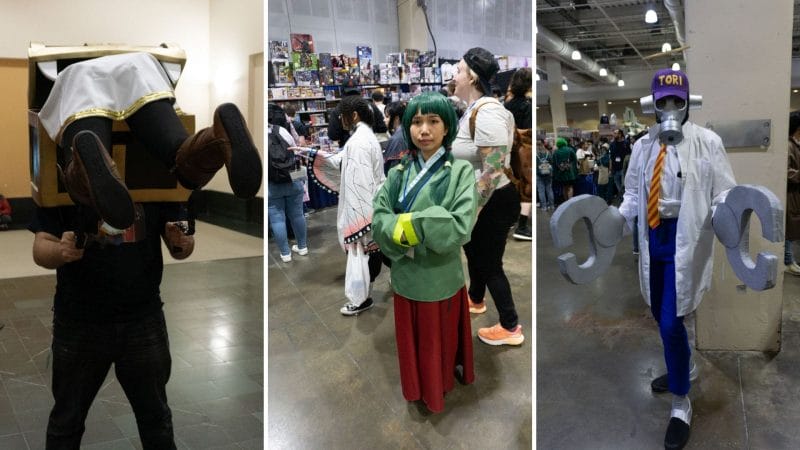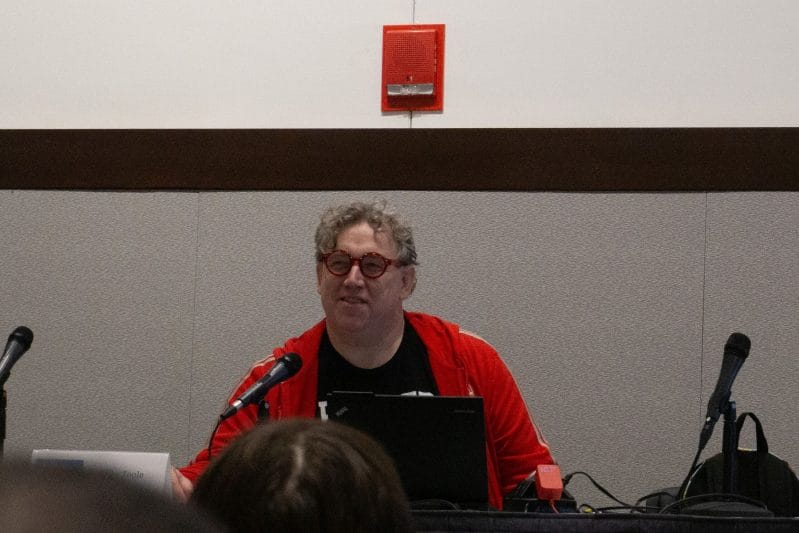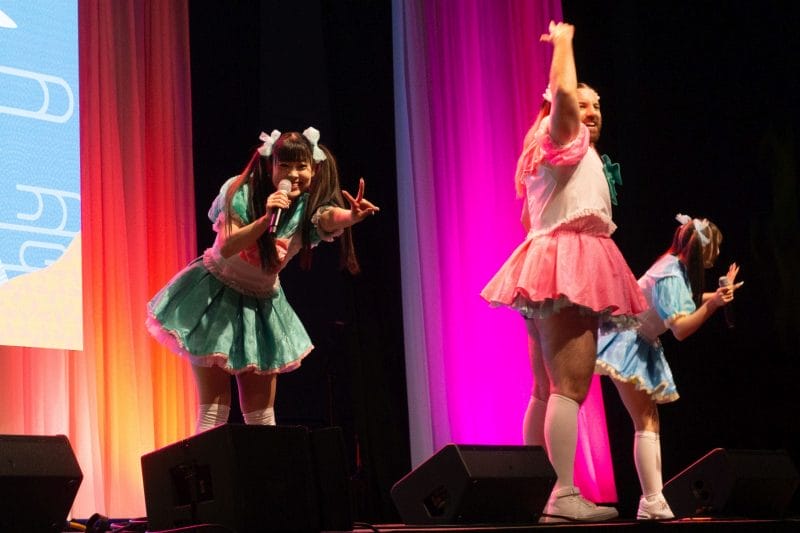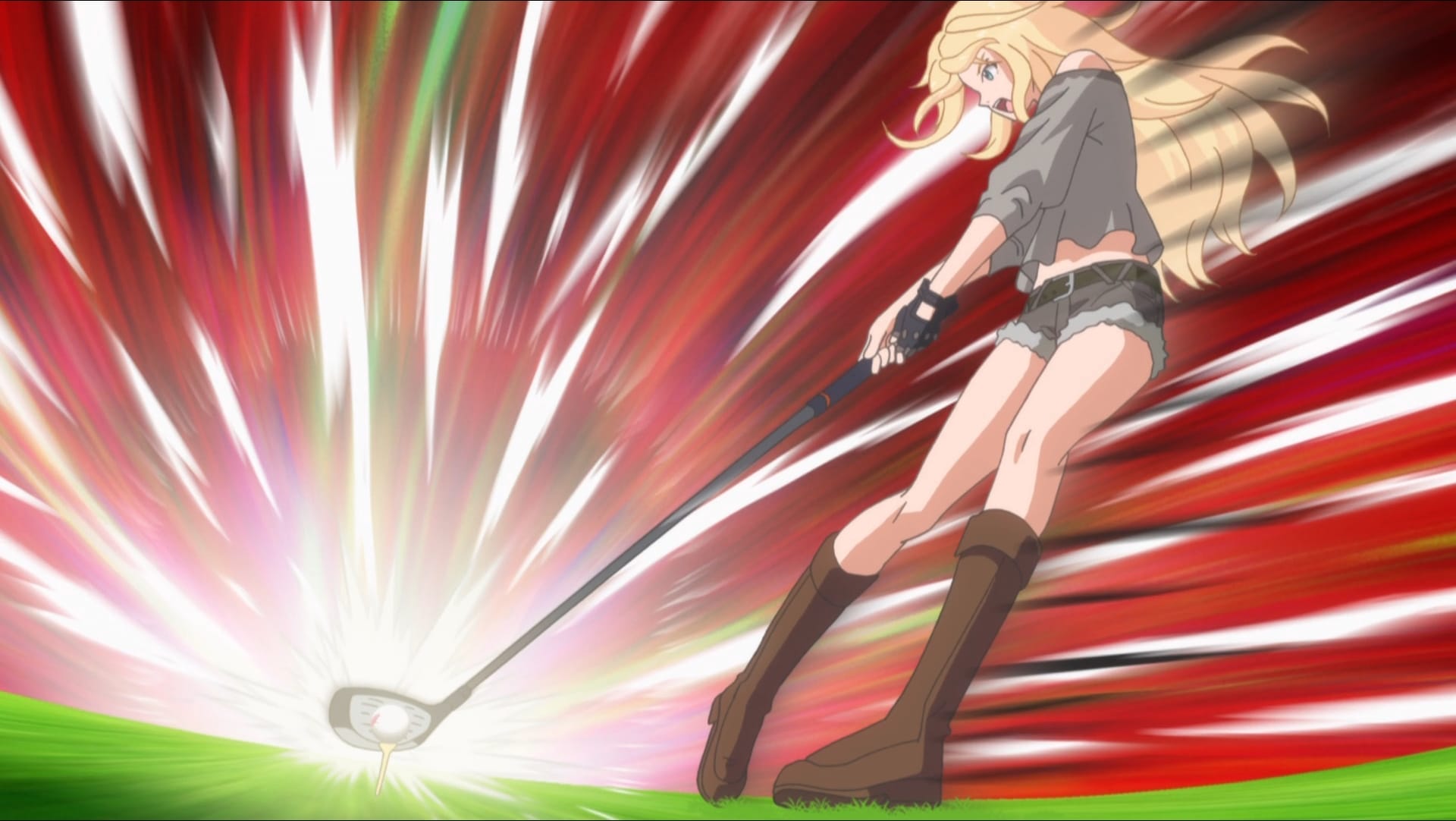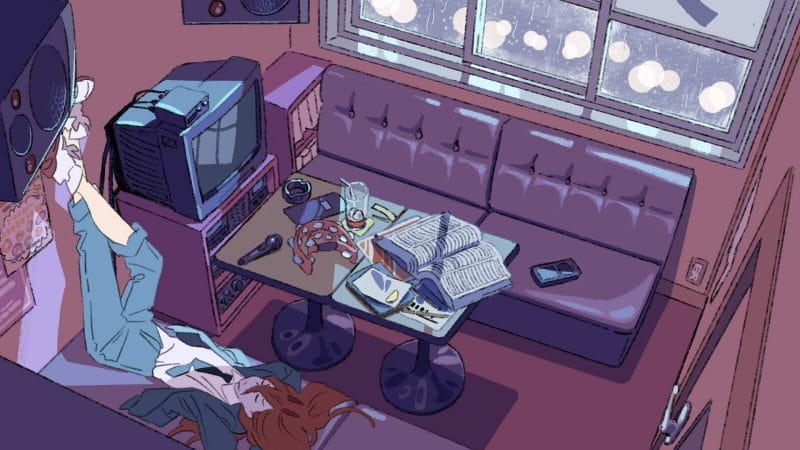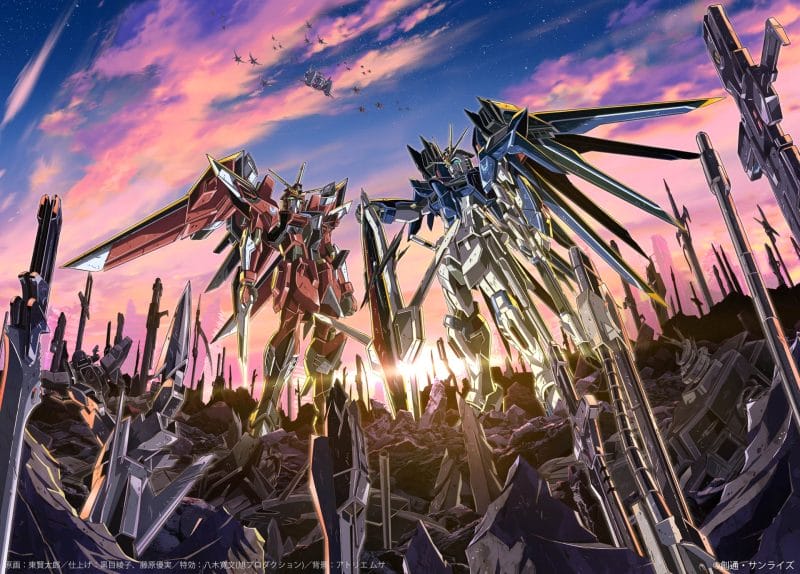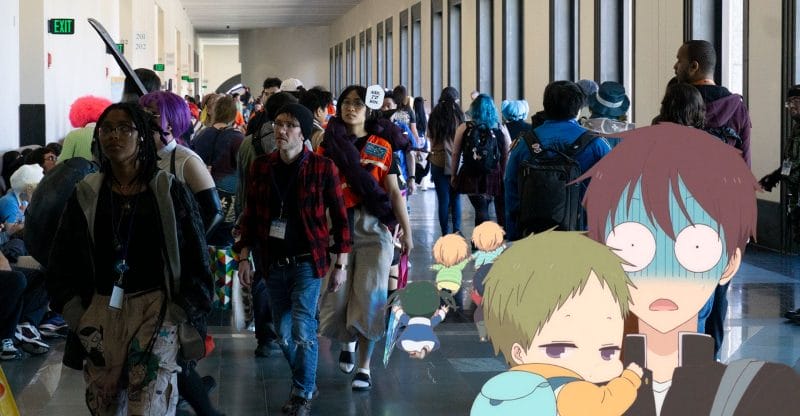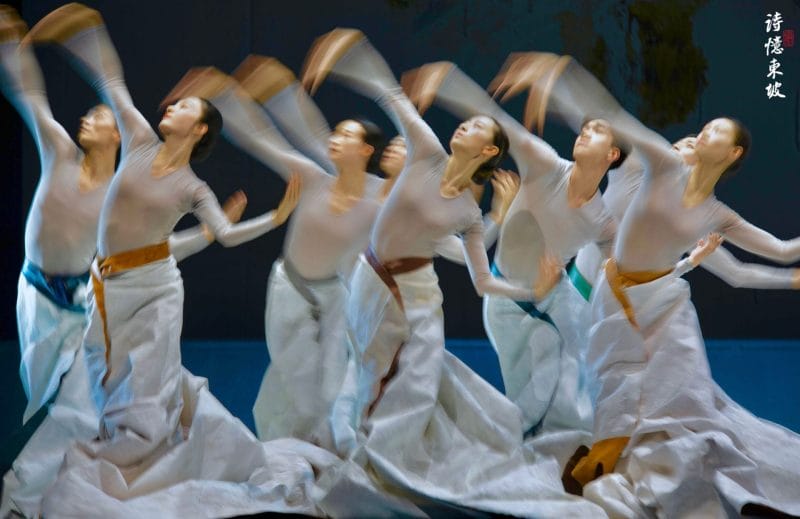Date: 11/19/2023
Panelists:
- Christopher Macdonald (Publisher, Anime News Network)
- Lynzee Loveridge (Executive Editor, Anime News Network)
- Nicholas Friedman (Senior Manager of Editorial, Crunchyroll News)
For some fans, the life of an anime journalist seems like a dream. To be able to make a living while writing about something you adore seems like the stuff of fiction, or at the very least, a year that starts with the number nineteen. Indeed, the number of active publications has dwindled over the years. Still, even as the publishing landscape has shifted over the years, several avenues remain open to those who wish to work in the field.
On November 18, dozens of fans filed into Anime NYC’s Panel Room 5, in hopes of getting a few tips on how to cut their teeth as anime journalists from a panel led by Anime News Network’s publisher, Christopher Macdonald, their Executive Editor Lynzee Loveridge, and Crunchyroll’s Senior Manager of Editorial, Nicholas Friedman. Following a brief introduction and description of their day-to-day duties, the trio opened the floor to questions from the audience.
While introducing himself, Friedman chuckled as he described his daily agenda as “a lot.” In his role, he oversees Crunchyroll’s global newsroom, which is presented in eight languages. Loveridge, meanwhile, oversees the op-ed department of Anime News Network, which includes features, reviews, and event coverage. Beyond her department, she manages the social media team and co-hosts the ANN Aftershow podcast.
How did you get into journalism?
Friedman was the first to answer, explaining that he studied journalism in college and holds a Bachelor’s degree in the field. He began his career in the bullpens of newspapers, including the Denver Chronicle and the Dallas Morning News. He noted that, before he entered the profession, though, he freelanced for geek media publications since high school, specifically noting that he wrote comic and anime reviews, in addition to video game content.
As he got further into his career, Friedman discovered that an opportunity opened at Funimation for a social media manager. He applied for the position and was hired, which proved to be his foot in the door to the greater anime industry. He worked to build up an editorial team at Funimation and moved over to Crunchyroll to assume his current role when the two companies merged in 2021.
Loveridge explained that she entered community college on a journalism track in 2007. She wrote for her school’s newspaper, which famously went to court with the administration, who weren’t happy about the publication’s reporting on upper management.
She ultimately moved on, to get her Bachelor’s degree in journalism. While pursuing her degree, Loveridge served a three-month internship for Anime News Network. The company was impressed by her work and asked her to extend her tenure. She refused, though, as the role wasn’t paid. When a part-time job opened up, they asked her again to return.
Loveridge began in the News and Editorial departments. While working in Editorial, she worked with then-managing Editor Bamboo Dong to build up the organization’s Interest department. Dong left the company after receiving her Ph.D., and Loveridge filled the role to focus on the Interest and Editorial departments full-time.
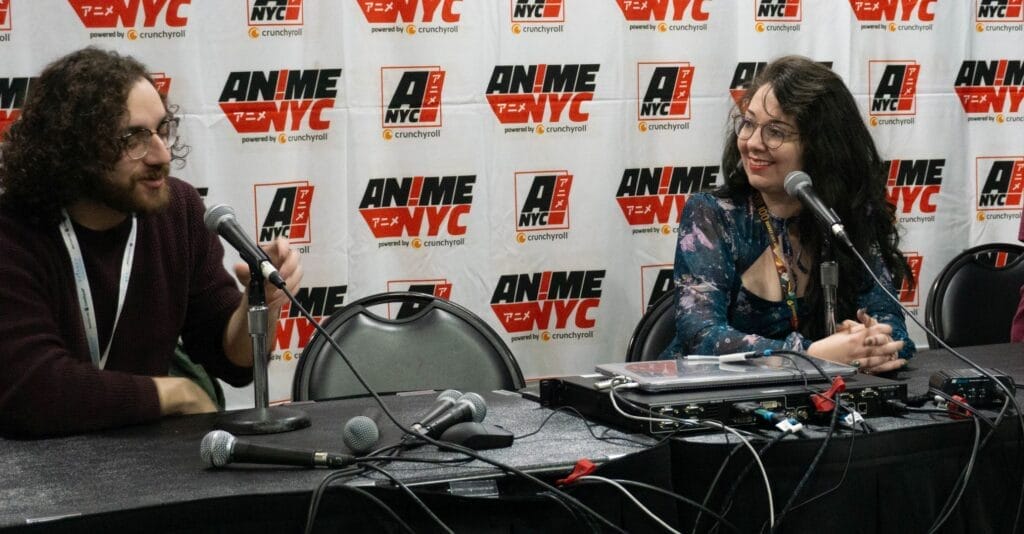
In terms of education, if someone is looking to become an anime journalist, what do you recommend?
Friedman was quick to reply, saying “Start writing, is probably a good place to start.” He advised hopeful journalists to get a feel for their voice and to learn the basics as they study the craft. “You don’t need a journalism degree,” he emphasized, adding that blogging or even doing social media work could help to hone one’s skills. He implored the audience to ask for advice and added that he’s happy to help in shaping a pitch, even if it’s not for his department, to help newcomers get comfortable with the process.
Loveridge noted that it depends on which department someone wants to get into. “If you do newsroom,” she warned, “I suggest a journalism degree because it gets hairier.” She explained that editorial work is often feasible, so long as a writer can form an opinion and back it up with sources. From there, it’s possible to pivot to op-ed work.
For the newsroom, though, a journalistic background is a must, as writers in that department need to understand the ethics of working in the field. This is especially true in investigative and political work, as writers need to know how to protect sources, and the ethics associated with doing so. A journalism degree will also provide reporters with the knowledge of the law that will better equip them to handle SLAPP suits, Cease and Desist notices, and other legal challenges.
Also, knowledge of the Associated Press stylebook and how to use it is a must.
Macdonald agreed with Loveridge and Friedman, confirming both of their comments, before adding that a media or creative arts degree is preferable when doing editorial work. That said, he explained that finding full-time work isn’t the most viable option for many. “I am the bubble burster,” he said coyly, adding that there are only two places in the industry where a full-time anime journalism job exists: Anime News Network and Crunchyroll.
He cautioned those in attendance to become a journalist, before trying to become an anime journalist. He encouraged the room to do journalism for the type of work they want to do, and to be constantly writing as it builds their portfolio. He argued that folks should work for newspapers or pop culture outlets, and become the resident anime experts. “You do not have to set your sights on ANN, Crunchyroll or bust, because it’s probably going to be ‘bust’.”
“There’s a lot of really good stuff out there,” Macdonald added. Loveridge interjected, noting “though [the field]’s getting smaller.” They both agreed that learning Japanese is useful, as there’s a shortage of journalists in Japan at the moment.
How do you craft a pitch to an outlet?
Loveridge responded first, explaining that there are a few vital elements to pitching. First and foremost, she cautioned people to read any publication’s guidelines carefully. She added, “I can tell when you haven’t read it.”
Second, include clippings and portfolio work. Though media-centric pieces are preferred, these can be almost anything, from published works to book reviews on Goodreads. Basically, editors are looking for anything that can be used to determine an applicant’s overall writing style and voice. She noted that she especially looks for strong and unique points of view.
Third, she receives many pitches for whatever the equivalent “big three” titles are at the moment, but she is tired of them. Unless a person’s approach is genuinely novel, they’re going to be competing with a massive pool of writers who are trying to write about the exact same things. Writers will typically have a greater advantage in pitching on less-prominent series that they’re passionate about, as the field is smaller by default.
Finally, when writing the cover letter, most editors can tell if you’re using a template, especially if you’re pitching multiple publications at once. Because of this, she implored potential applicants to take enough time to include the correct publication in the letter. Regarding resumes, she stated that she isn’t picky. Whether someone’s resume includes jobs like customer service or phone banking doesn’t matter, overall. What does matter is that everything is written properly and spelled correctly.
Macdonald elaborated on the last statement, explaining that “editors [generally] don’t like fixing typos.” In a newsroom, where everything is in a rush, one has to expect a writer’s work to be flawless. For op-ed work, he stated that there is a bit more time to work with, but generally, things should be mostly perfect the first time around. Editors shouldn’t have to spend too much time on a piece. This applies to a writer’s cover letter. If there’s a typo in the first sentence, the rest of it isn’t getting read. He beseeched writers to always re-read what they write.
Friedman pointed out that information was available on Crunchyroll’s “About” page. He explained that one of his focuses comes from the platforming and spotlighting of underrepresented voices within the greater community. “You can assume the biggest shows of the year are covered,” he added, “but what is the unique story you can tell, and only you can tell to a specific audience?”
Loveridge agreed, and added that some publications focus entirely on SEO, a practice she doesn’t care for, as it encourages writers to become robotic. Instead, what matters to her, is that a writer can produce a useful resource for readers. For example, if a person is knowledgeable about something immensely complicated, like the timelines within the Fate universe, that becomes immediately interesting. Meanwhile, ideas like “What happens to Tsukunai at the end of Jujutsu Kaisen’s Theatre Arc” elicit eye rolls.
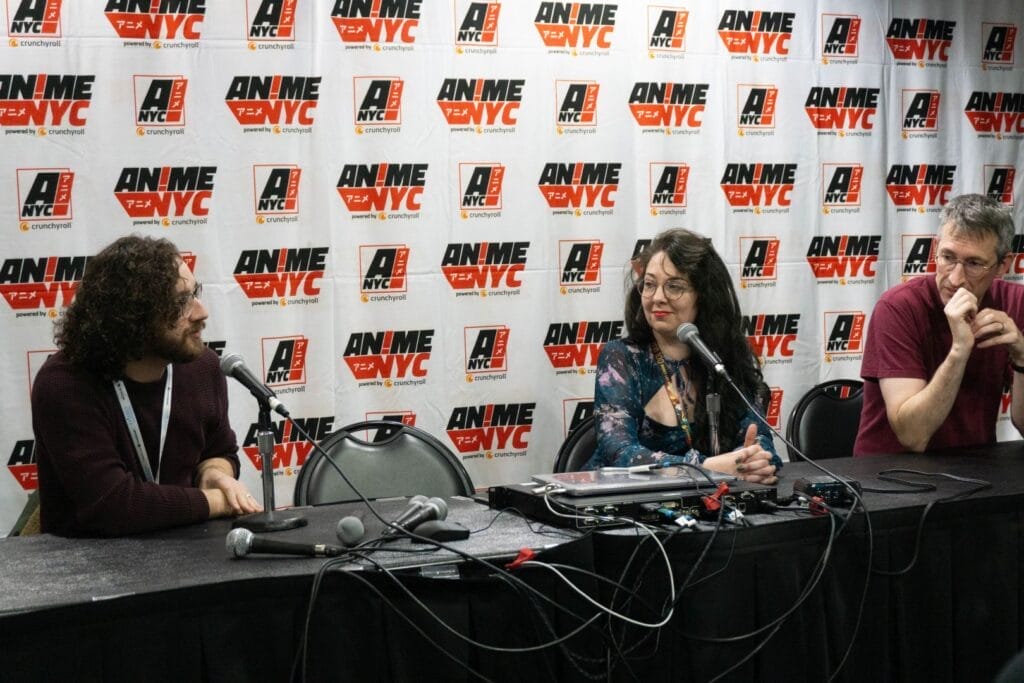
I’m not really sure how the process works, but I’m interested in hearing from your perspective when approaching an interview to do a piece, what is the target you’re trying to hit?
Loveridge paused for a moment, before replying. She stated that interviewing in anime journalism is unique, compared to other fields. She encouraged people to get as knowledgeable about their subjects as possible. For example, at a con, go to their panels or check out their work. She noted that she’s also trying to get away from writing transcripts, as it doesn’t allow writers to bring their own voices to the table.
In the case of a controversy about a property or comment, she cautioned that reporters will typically need to submit the question early, because they’ll often be shuffled through management, who will ask for the questions in advance. Those inquiries will inevitably be rejected. It can be frustrating, but she wants folks to be prepared for this inevitability.
Friedman encouraged reporters to “just listen.” He explained that submitting questions in advance can limit the opportunity for follow-ups, as one has to add time in for interpreters, making timing important. At the same time, he advised hopeful journalists to remain engaged, as creators will be able to tell when someone’s excited. “If they know you know the show and rep the fandom, you get better answers and a more colorful interview.”
Loveridge agreed, but cautioned that there is a balancing act when picking someone for interviews. She looks for someone who’s familiar and enjoys a property, but doesn’t want the interviewer to fawn over the creator. “They’re still just people.”
Macdonald added that interviewers should pay attention to the answers. While it’s easy to just think about the next question, most people are willing to go along with a good follow-up, even if questions were submitted in advance.
Loveridge chimed in with an anecdote about a situation in which she asked an interviewee a question, only to be met with a blunt “Well, that’s the assistant’s job.” She noted that, in cases like this, one needs to push to get more out of a session.
Macdonald advised people to frontload their questions and ask the most interesting ones first. He added, “it’s a really good interview if you don’t finish!”
“There’s a huge pool for stuff that doesn’t have a lot of competition. What would you like to see?”
Loveridge immediately blurted out “Shojo and josei,” prompting applause to ring out from the audience. She added, “If you wanna talk about Fruits Basket, or [Ai Yazawa’s] Neighborhood Story manga,” she’d love to hear about it.
Macdonald pondered for a moment before answering with discussions on so-called “hidden gems.” He elaborated, describing this as “something you can say ‘this show is amazing and you can talk tons about it, but not many know about it.”
He also would like to see more thematic analysis. As examples, He suggested “Cowboy Bebop, but you’re talking about the music within [it] […] Not Bleach, but the representation of Black and POC people within it.” But, basically, he advised folks to try to find something that others aren’t writing about.
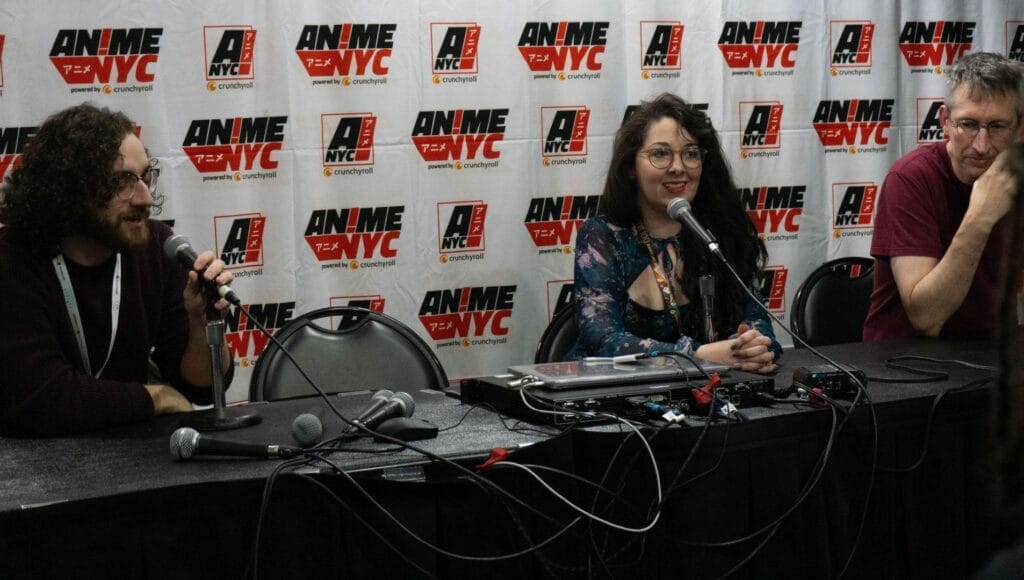
There is a lot of discussion of working conditions at anime studios (MAPPA and Jujutsu Kaisen). How do you verify this, and how do you interview anonymous sources in Japan?
Macdonald explained that it’s incredibly difficult, due to the amount of work involved. Because of this, it becomes the sort of thing that many in the field do as “passion projects”, because they’ll be spending literal weeks, if not months working on an article. He noted that he’s working on a piece in a similar vein, but it’s taken him months, because while he has the contacts, the duties in his job limit his overall time to pursue the project.
He added that the easiest route for many is to follow tweets as they come out. Still, to do something in-depth, it’s incredibly difficult unless the person involved is an established figure, with connections within the industry. Macdonald, for example, has been in the industry for twenty years. He’s an established, familiar face, and has doors open to him that many others don’t.
In an aside, he noted that, while a lot of bad news has arisen on Twitter, working conditions within the greater industry have been steadily improving, in general. He explained that an increasing number of animators, notably in-betweeners and similar roles, are making a living wage. They’re still not making much, say the equivalent of $2,000 US a month instead of the former $1,000, but things are slowly getting better.
Loveridge nodded in agreement, and added that Anime News Network had covered other studios where incidents like this have occurred. As an example, she highlighted the outlet’s coverage of a 2019 incident, in which a production assistant at Madhouse was hospitalized from overwork. She explained that this coverage does sometimes cause doors to close for them, and they can have longer-reaching impacts on the outlet as a whole. Still, her job is to care less about the potential blowback than Macdonald.
Friedman concurred, adding, “you have to be a career journalist to write a story like that.” Specifically, such topics require intimate knowledge of the divide between ethics and law.
Macdonald nodded, and explained, “If Roland Kelts wrote that in a cold email pitch, we’d consider it. But if an upcoming anime journalist wrote that, I’d say ‘sorry’.”
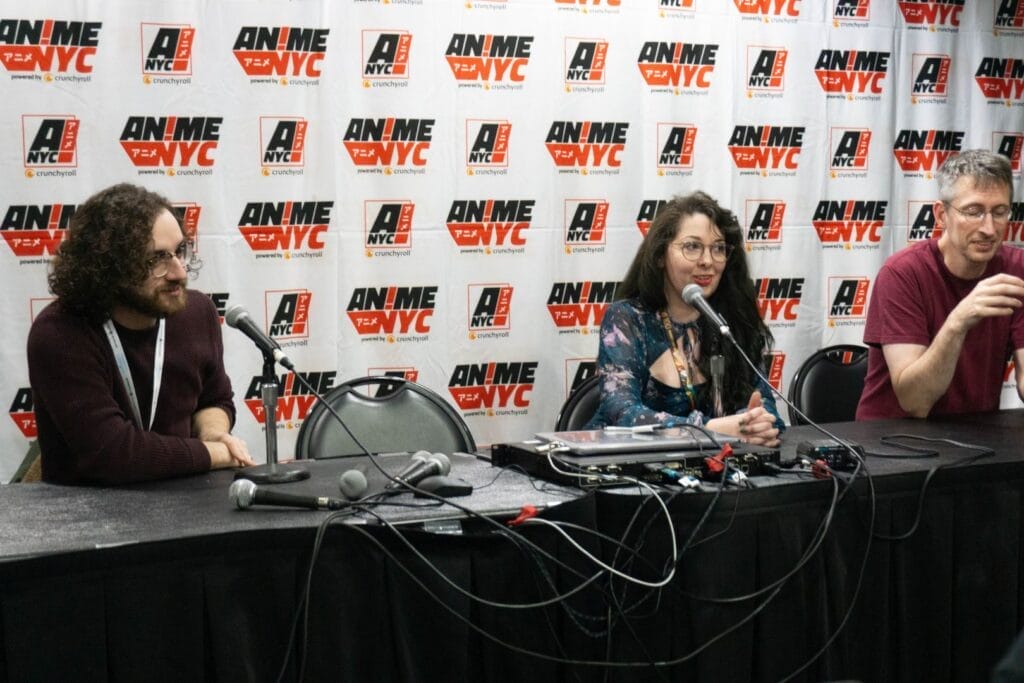
If one were to submit a pitch, when should I follow up with you on when to hear back?
Loveridge paused for a moment before replying. “If you send me a pitch,” she explained, “and you don’t hear back, sometimes you won’t hear back for month.” She explained that she typically goes through pitches on a quarterly basis, so it can take a couple of months to hear back. For time-sensitive topics, she advised folks to put “URGENT TOPIC” in the subject. She cautioned folks that this is not a Fast Pass, and only to be used for topics with a real time limit attached. “If you’re lying about this,” she warned, “you will be blacklisted.”
Friedman followed up to explain Crunchyroll’s policies. “Generally, if you don’t hear back within two weeks,” he explained, “it’s unlikely we’ll move forward with your pitch.” He urged applicants to not take that as a signal to stop, and that a rejection isn’t a reflection on the writer. “It’s just not the right piece, at that time.”
Loveridge agreed and urged folks to find a creative writing Discord server if they need advice or tutelage. At the level she’s working, she doesn’t have much time for mentorship.
Macdonald interjected, saying “I’m going to disagree with this to a tiny bit.” He noted that there’s a fine line between checking in and being annoying. Where one editor will thank someone for checking in after two weeks, others may find it irritating. As such, he advised people waiting on pitches to wait two weeks to a month and to send one follow-up, which should be a reply to the original response. He added that pitches do get lost from time to time.
“Has your passion or love changed since starting in the industry? Do you still see niche stories as non-repetitive, and do you see projects as potential work, or [a judgment on] how long you’ve been working on it?”
Macdonald smiled as he exclaimed, “I’ve been writing about anime for 23 bloody years, and I still love it!”
Loveridge was more balanced in her answer. She explained that she went through burnout period during the late 2000s, which led her to miss a lot from the era. She still watches anime for fun, and she still adores the medium, but she doesn’t watch it on the same level as other fans. Instead, she balances it out with other media. She noted that there are a lot of shows she’s enjoyed of late, including Spy x Family, and she’s having fun rewatching Jojo’s Bizarre Adventure with her family.
Friedman agreed, saying, “I don’t think that I’ll ever stop watching anime.” He noted that while work is one thing, he’s able to keep it separate from when he watches in his own time. He still watches about a dozen shows a season, though he balances it with other media, like video games. He added that folks absolutely should watch The Apothecary Diaries this season.
Macdonald concurred and explained that burnout is a very common phenomenon, especially among reviewers who get tired of having to watch anime every single week. Typically, they’ll keep working as professionals, and they’ll often eventually discover a show that makes them say “This is why I love anime.”
How does your approach differ between writing for print vs. audio?
Loveridge explained that, for her podcasts, there is no actual “writing” to be done ahead of time, as they’re discussion-based. As such, they’re more freewheeling, though she tries to keep things topical to what people are watching. She added that they try to keep the audience in mind when selecting shows to feature, and the hot news topics at the time.
Macdonald added that podcasting requires more of a moderator’s skillset than a journalist’s, as they require knowledge of how to moderate panel discussions and keep things interesting in a live environment.
Conclusion
After giving thanks to the audience, the dozens in attendance shuffled back out toward the main concourse. It was hard to hide the enthusiasm in the air, as folks chatted about topics they wanted to write about, or workshopped pitch ideas with each other. The panel was a one-hour crash course in anime journalism presented by the industry’s undisputed leaders. Armed with their advice, and the gumption to grab the anime world by the horns, it was hard to not feel optimism radiating from the folks seeking their own ways to become the change that pushes the world of anime writinginto the next generation.


